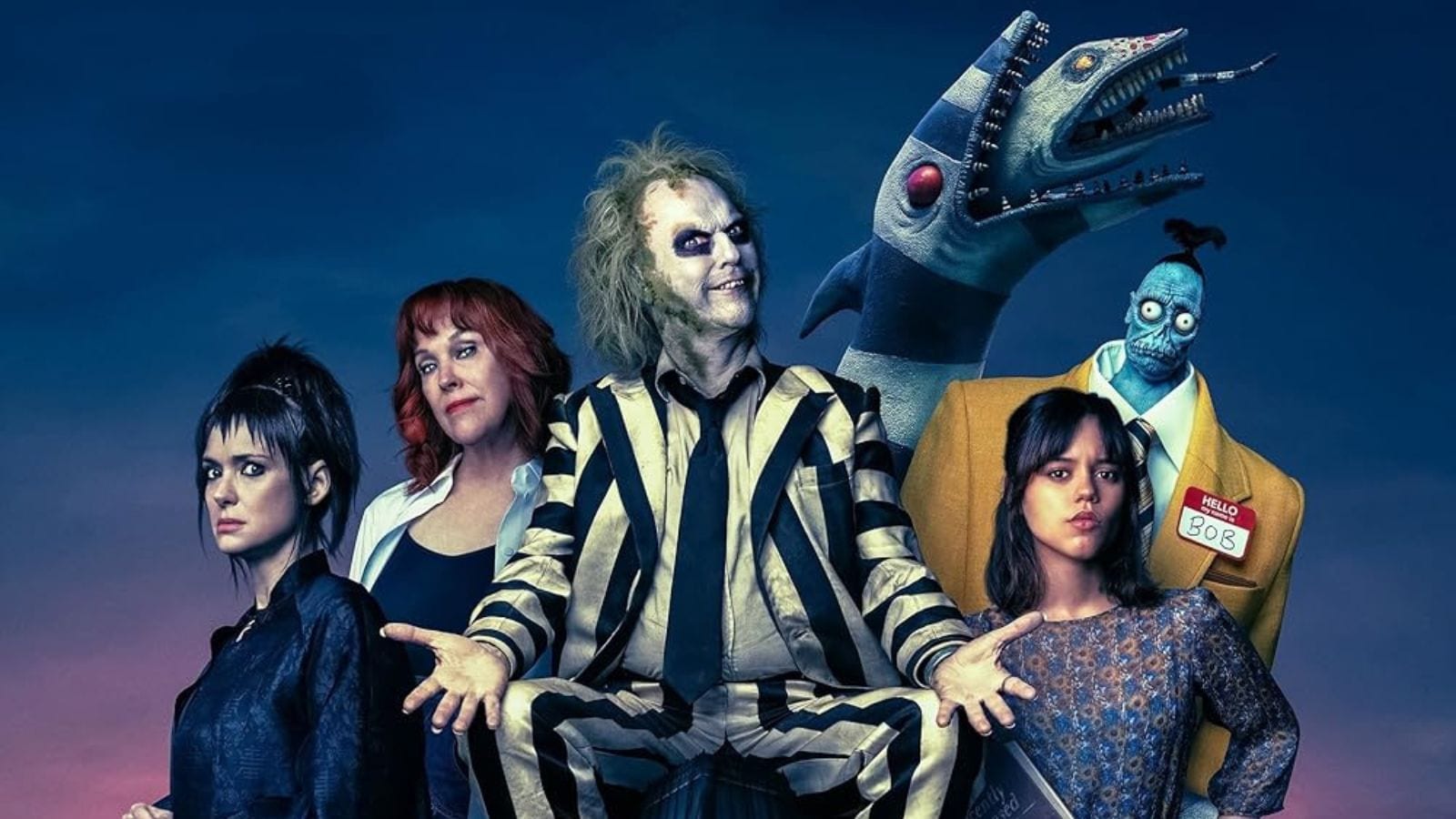“Beetlejuice Beetlejuice” is a mixed bag of spooky delights and missed opportunities. On the surface, it feels like a return to Tim Burton’s earlier days—an overstuffed, wild ride where each new scene feels like a toy being pulled from a magical, gothic grab bag. But as fun as the spectacle can be, it lacks the coherence and simplicity that made the 1988 original such a beloved classic.
Michael Keaton’s return as the title character is undeniably one of the film’s brightest spots. His Beetlejuice is as maniacal and hilarious as ever, slipping back into the moldy, stripe-suited menace with ease. And Winona Ryder, reprising her role as Lydia Deetz, gives the movie some much-needed emotional depth, portraying a woman haunted not just by ghosts, but by life’s disappointments and missed chances. Yet, despite Ryder’s strong performance, there’s an unmistakable feeling that something is missing, a sense of loss and nostalgia that the movie never fully explores.
Where “Beetlejuice Beetlejuice” falters is in its overabundance of subplots and its failure to follow through on the weightier themes that could have elevated the story. The estrangement between Lydia and her daughter Astrid (played by Jenna Ortega) is meant to be a central emotional thread, but it often feels overshadowed by the film’s insistence on cramming in every possible visual gag, musical number, and macabre set piece. At one point, the subplot reaches a moment of emotional clarity—an exploration of grief and loss that seems primed to deliver something meaningful—but just as quickly as it arrives, it disappears, buried under the avalanche of other storylines.
And that’s part of the frustration. For all its eccentric charm and visual spectacle, the film never gives its characters or its audience the chance to fully process the passage of time or the absence of beloved figures from the original movie. Geena Davis and Alec Baldwin’s characters are mentioned in passing, but their absence, along with Jeffrey Jones as Charles Deetz, leaves a gaping hole that the new cast and subplots can’t quite fill. This sequel, though packed with Burton’s signature dark whimsy, misses the opportunity to dig deeper into the consequences of time, memory, and loss—themes that could have resonated powerfully given the film’s three-decade gap from its predecessor.
In the end, “Beetlejuice Beetlejuice” has plenty of fun, quirky moments, but it can’t shake the feeling that it’s a ghost of its former self. The movie is an uneven spectacle—overcomplicated by too many storylines and undercut by its reluctance to fully embrace the emotional weight it flirts with. For those hoping to recapture the magic of 1988’s original, the sequel offers glimpses, but it never quite manages to summon the same mischievous, kooky spirit. If there’s a win here, it’s in sparking interest among a new generation of fans, thanks to Ortega’s stellar performance. But for those of us who have waited this long, it’s hard not to wish for something more substantial, especially with the “ghost with the most” at the center of it all.

